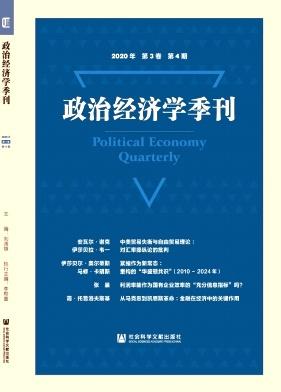Trade Policy, Economic Interests and Party Politics in a Developing Country: The Political Economy of CAFTA
引用次数: 67
Abstract
Developing countries have increasingly opened their economies to trade. Research about trade policy in developed countries focuses on a bottom-up process by identifying economic preferences of domestic groups. We know less about developing countries. We analyze how economic and political variables influenced Costa Rican voters in a referendum on CAFTA-DR, an international trade agreement. We find little support for Stolper–Samuelson models of economic preferences, but more support for specific factor models. We also isolate the effects of political parties on the referendum, controlling for many economic factors; we document how at least one party influenced voters and this made the difference for CAFTA-DR passage. Politics, namely parties using their organizational strength to cue and frame messages for voters, influenced this important trade policy decision. Theories about trade policy need to take into account top-down political factors along with economic interests.发展中国家的贸易政策、经济利益与政党政治:CAFTA的政治经济学
发展中国家日益向贸易开放其经济。关于发达国家贸易政策的研究侧重于自下而上的过程,通过确定国内群体的经济偏好。我们对发展中国家了解较少。我们分析了经济和政治变量如何影响哥斯达黎加选民对CAFTA-DR(一项国际贸易协定)的公投。我们发现对经济偏好的Stolper-Samuelson模型的支持很少,但对特定因素模型的支持更多。我们还孤立了政党对公投的影响,控制了许多经济因素;我们记录了至少一个政党是如何影响选民的,这对CAFTA-DR的通过产生了影响。政治影响了这一重要的贸易政策决定,即政党利用其组织力量向选民发出暗示和框架信息。贸易政策理论在考虑经济利益的同时,也需要考虑自上而下的政治因素。
本文章由计算机程序翻译,如有差异,请以英文原文为准。
求助全文
约1分钟内获得全文
求助全文

 求助内容:
求助内容: 应助结果提醒方式:
应助结果提醒方式:


